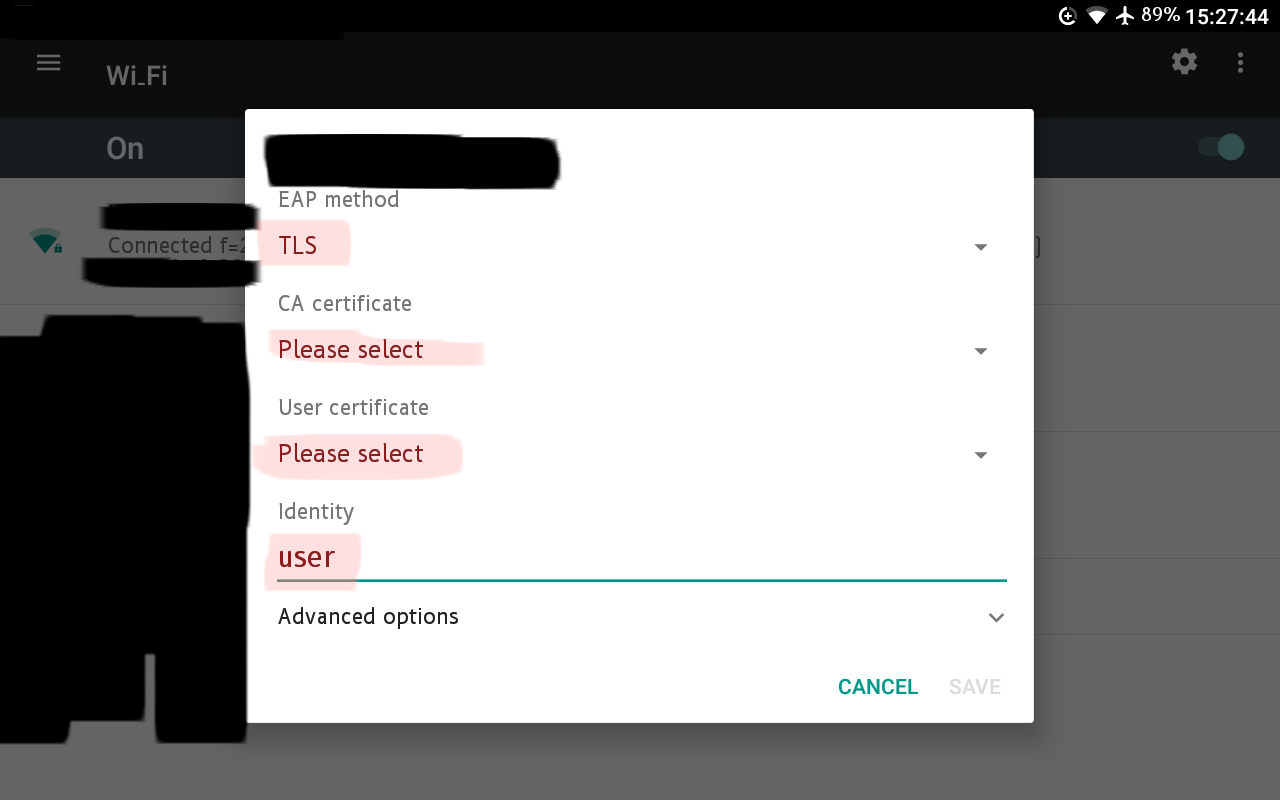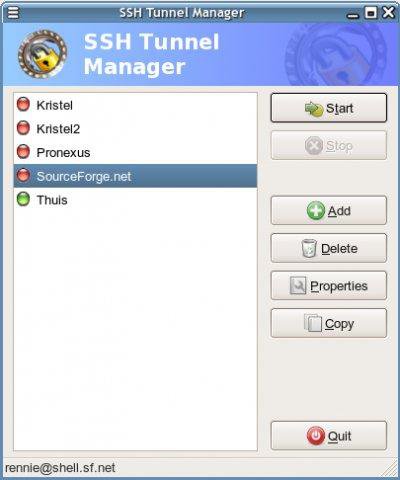
The public key can be freely shared with any party. One of these keys is known as the private key, while the other is called the public key. Asymmetrical EncryptionĪsymmetrical encryption is different from symmetrical encryption because to send data in a single direction, two associated keys are needed.

The client and server both contribute toward establishing this key, and the resulting secret is never known to outside parties.
#Crypt method ssh tunnel manager password#
The symmetrical encryption allows even password authentication to be protected against snooping. Contrary to what some users assume, public/private asymmetrical key pairs that can be created are only used for authentication, not encrypting the connection. Symmetric keys are used by SSH in order to encrypt the entire connection. There is typically only a single key that is used for all operations or a pair of keys where the relationship is discoverable and it’s trivial to derive the opposite key. This type of encryption scheme is often called “shared secret” encryption, or “secret key” encryption. This means that anyone who holds the key can encrypt and decrypt messages to anyone else holding the key. Symmetrical encryption is a type of encryption where one key can be used to encrypt messages to the opposite party, and also to decrypt the messages received from the other participant. The relationship of the components that encrypt and decrypt data determines whether an encryption scheme is symmetrical or asymmetrical. These include forms of symmetrical encryption, asymmetrical encryption, and hashing. In order to secure the transmission of information, SSH employs a number of different types of data manipulation techniques at various points in the transaction.

Understanding Symmetric Encryption, Asymmetric Encryption, and Hashes This information can be useful for understanding the various layers of encryption and the different steps needed to form a connection and authenticate both parties.

In this guide, we will be examining the underlying encryption techniques that SSH employs and the methods it uses to establish secure connections. Using a number of encryption technologies, SSH provides a mechanism for establishing a cryptographically secured connection between two parties, authenticating each side to the other, and passing commands and output back and forth. SSH, or secure shell, is a secure protocol and the most common way of safely administering remote servers.


 0 kommentar(er)
0 kommentar(er)
